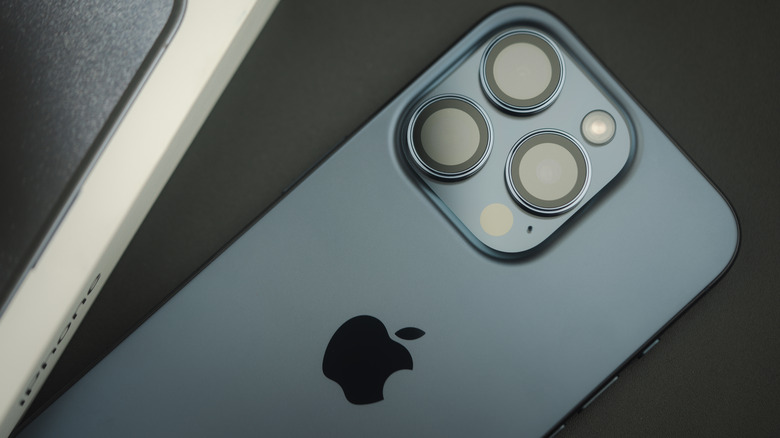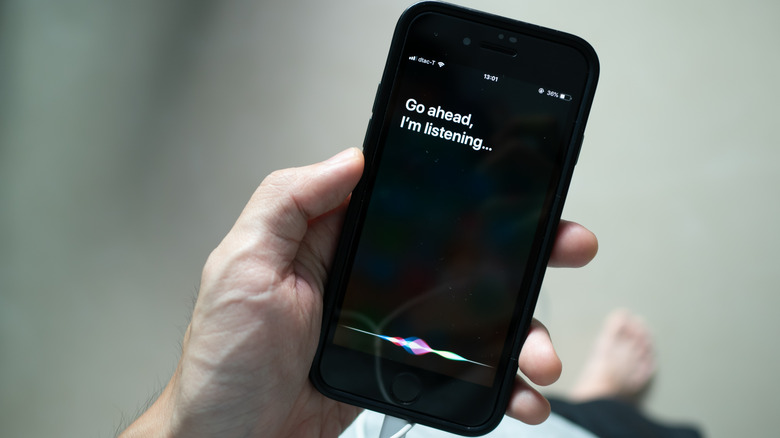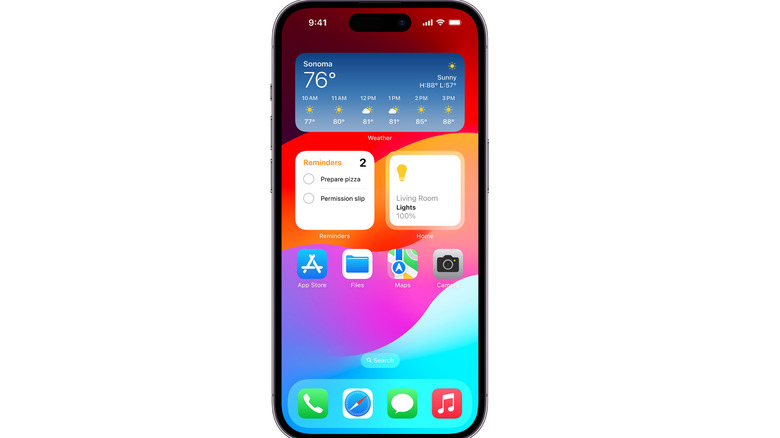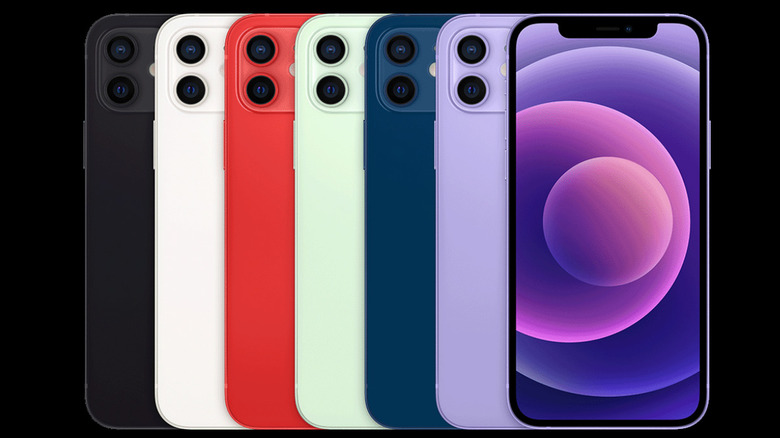What We Know About When iOS 18 Is Coming Out
If you've heard some of the rumors surrounding iOS 18 — Apple's eventual big update to the software that the iPhone runs on — you might be getting impatient while waiting to download it as soon as you can. Unfortunately, you've still got some time to go, as iOS 18 isn't set to release until next fall, shortly after Apple's expected unveiling of the iPhone 16 in early September. None of this, of course, has been confirmed by Apple, but it's a safe bet considering that iOS upgrades typically release in September, alongside new iPhones.
That may seem like a long wait, but if you're really aching to try some of the new features that iOS 18 will bring, you may not have to wait that long. That's because Apple typically unleashes trial, or beta, versions of iOS in the summers that you can try out for yourself. Because it's a beta, there's always a risk of running into undiscovered bugs and possibly even bricking your phone. The good news is that there are ways to unbrick your bricked iPhone too.
The beta for a new iOS usually releases after Apple's annual WWDC keynote, which this year will take place on June 10.
AI is (probably) coming to the iPhone
Not all iOS updates are built the same. Some focus on cosmetic, minor upgrades, while others can totally change the way you experience and interact with your iPhone. This year's iOS 18 looks like it could be the latter, thanks in part to artificial intelligence. The iPhone jumped ahead in the AI race back in 2011, when it released Siri for the iPhone, but many users have considered it buggy and imperfect. This is likely why the integration of AI and an improved Siri are one of the most desired iOS 18 features we hope to see.
While nothing is officially confirmed and everything is either a rumor or speculation, a general consensus is that AI will be implemented into some of the iPhone's core functions, such as Messages. Rather than creating its own chatbot akin to ChatGPT or Google's Gemini, this new AI is expected to run similar to how Microsoft has added Copilot to its Windows devices. For example, you might be able to use AI to help write and proofread emails on your iPhone. You may also be able to use AI to efficiently search through old conversations on your Messages app.
It's also likely that this AI will run entirely locally on the iPhone and Apple Silicon, rather than using the cloud processing technique currently employed by many other AIs, such as ChatGPT. This, theoretically, will make it run faster, while also keeping your data more private and secure.
iOS 18 will have other new features as well
AI won't be the only change that iOS 18 will bring. Some reports hint that the new platform will include major visual changes that make it similar to competitor Google's Android software. These changes would include the ability to customize your Home Screen and place icons wherever you'd like, as well as possibly more Lock Screen customization options.
Another major change is the expected implementation of RCS messaging, thanks in part to pressure from European Union regulators. This new industry-wide standard for texting, used by Android and other platforms, could make messaging with "green bubble" non-iPhone users much better. Potential features include live typing indicators, read receipts, audio messages, Wi-FI messages, and better resolution for shared photos and videos.
Other iOS 18 changes that are expected include Live Speech and Adaptive Voice Shortcuts options in your Accessibility settings, as well as enhancements made to the Notes app and Apple Maps.
Apple's also likely to upgrade the Conversation Boost feature that iPhones use in tandem with AirPods Pro in iOS 18. This updated feature will reportedly allow users to put their AirPods Pro into "hearing aid mode."
iOS 18 won't be available for every iPhone
While these iOS 18 updates may sound exciting, it's important to remember Apple only makes them available to iPhones made in the past half-decade or so. That would likely mean iOS 18 would support the iPhone XR, XS, and XS Max, and any devices released since then, including all models of the iPhone 11, iPhone 12, iPhone 13, iPhone 14, and iPhone 15, as well as the second and third-generation iPhone SE. If your device is already running on or is compatible with Apple's current platform, iOS 17, then your device will almost certainly be capable of running iOS 18.
Typically, a new iOS is released with an extremely similar iPadOS. Current rumors suggest that the first-generation 10.5-inch iPad Pro and second-generation 12.9-inch iPad Pro, which both run off the A10X Fusion chip, won't be compatible with iPadOS 18. Similarly, sixth-generation and seventh-generation iPad models, which are at least six years old at this point, probably won't be able to run the newest iPadOS — so plan accordingly if you own one of these devices.
It's expected that iPadOS 18 will be compatible with iPad models from 2020 or later, iPad Airs and iPad Minis from 2019 and later, and iPad Pro models from 2018 and later.



